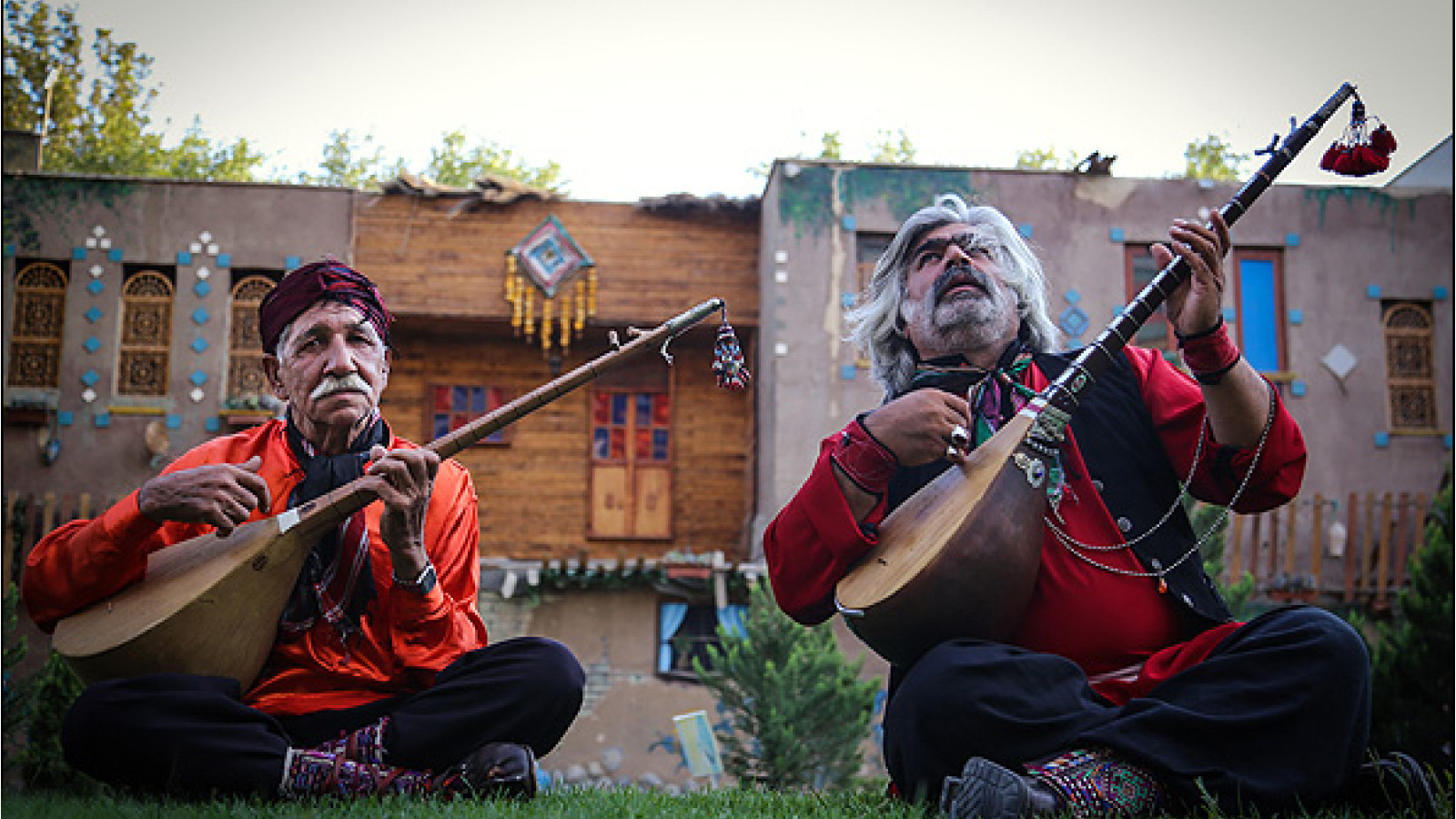
Haj Isa Gholipoor, known as Isa Bakhshy, was born in 1321 SH, in Sallakh, a village in the Central District of Bojnord County. Being a Dutar player and a master in this field, he played an important role in recording and preserving the music of this region. As all his ancestors, he is entitled Bakhshy, the traditional Turkmen musicians and Dutar players in North Khorasan and Turkmen Sahra. He himself says: “my grandfather, Soliman, his father, Karbalaei Reza, and my grandfathers, all have been Bakhshy.” The Bakhshy are traveling singers, Dutar players, storytellers, poets, and instrument maker. Sometimes, they considered as shamans, acting as healers and spiritual figures, and also providing the music for celebrations of weddings, birthdays, and other important life events.
Isa Gholipoor memorizes a lot of poems that carry the culture of the Bakhshy. He speaks about the narratives such as epic of Koroghlu, Asli and Karam (a Turkish hikaye), Ibrahim ibn Adham, the story of creation, Band e Barbar, and many other ones which are the stories and poems he has kept in mind. He has played Dutar in Bojnord during last 60 years. He learned how to play Dutar from his grandfather (Mohammad Bakhshy) and he also considers himself as the tutor of the master Hasan Yazdani. He has begun his artistic activities since he was 10 and continued being an artist until today. Turkish is his mother tongue but he sings in Kurmanji and Turkmen, and he believed he is one of Kurmanji tribes’ members and says: “Kurmanji’s culture, language, and literature has so many songs, subgroups, maqams, stories, and etc. that sometimes, I drown in them.” He has a great artistic background: participating in many different national, regional, provincial, and rural festivals, such as Fajr music festivals between 1367-1370, Piran e Changi festival (the festival of the masters of lyres) in 1379 SH, being accompanied by late Haj Alikhan Abchouri and Hosein Babi in Kurdish music festival in Sulaymaniyah (a city in Iraqi Kurdistan), judging some provincial and urban festivals. He never received any money for playing in ceremonies held in his motherland. He has also trained many students and tutors till today. And his children and grandchildren are among them learning how to play Dutar.